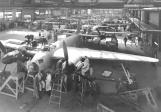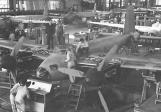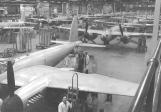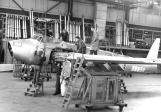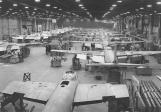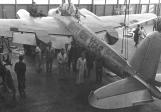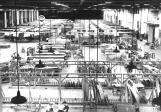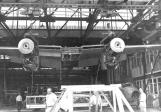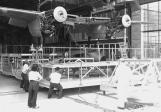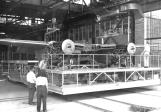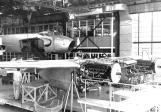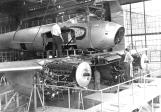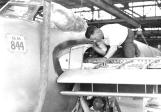1
A mature, independent aircraft company must balance research and development with production planning and organization. In wartime, the emphasis on production tends to freeze a design and only small improvements are made. To its credit, the parent de Havilland company in England maintained a high level of R & D, both for the many established Mosquito models and the new Vampire jet fighter.In Canada the challenge was different. The de Havilland Canada company before the war was just a small branch plant that did practically no research and development at all. During the war it became a very large branch plant that was still devoted only to production. The primary tasks were to line up reliable suppliers and sub-contractors, and to manage a massive and rapid expansion in physical plant and skilled work force. Sophisticated aircraft manufacturing on this scale had never been attempted in Canada before.
It is useful to remember that in 1941 Canada was a mostly rural and agricultural nation of less than 12 million people. In 1941, Toronto had less than a million citizens, and was smaller than Montreal. The Second World War accelerated the industrialization of Canada, and the expanded economy stimulated immigration from a ruined Europe.
